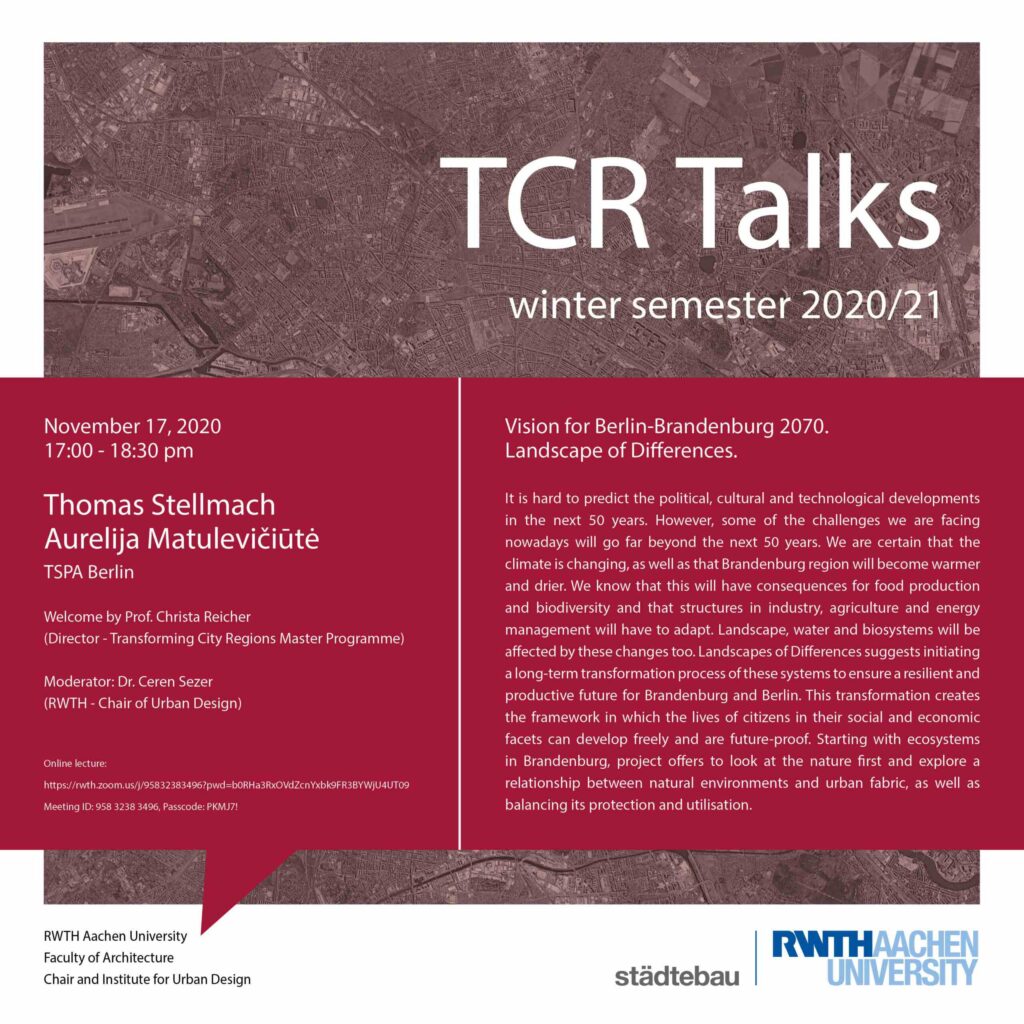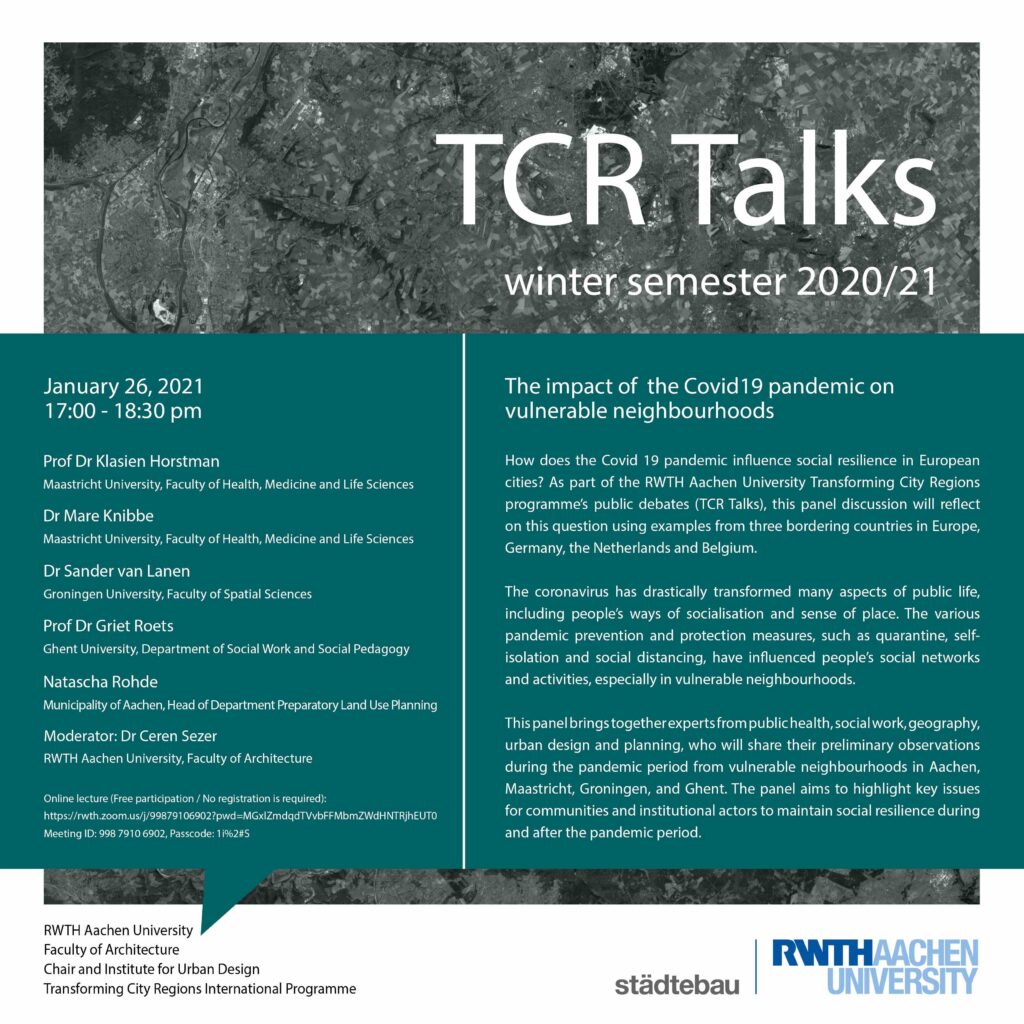TCR Talks
TCR Talks - November 17, 2020
Vision for Berlin-Brandenburg 2070. Landscape of Differences.
Thomas Stellmach and Aurelija Matulevičiūtė (TSPA Berlin)
Tuesday, 17th of November 2020, 5.00 pm
It is hard to predict the political, cultural and technological developments in the next 50 years. However, some of the challenges we are facing nowadays will go far beyond the next 50 years. We are certain that the climate is changing, as well as that Brandenburg region will become warmer and drier. We know that this will have consequences for food production and biodiversity and that structures in industry, agriculture and energy management will have to adapt. Landscape, water and biosystems will be affected by these changes too. Landscapes of Differences suggests initiating a long-term transformation process of these systems to ensure a resilient and productive future for Brandenburg and Berlin. This transformation creates the framework in which the lives of citizens in their social and economic facets can develop freely and are future-proof. Starting with ecosystems in Brandenburg, project offers to look at the nature first and explore a relationship between natural environments and urban fabric, as well as balancing its protection and utilisation.
Welcome by Prof. Christa Reicher
(Director – Transforming City Regions Master Programme)
Moderator: Dr. Ceren Sezer
(RWTH – Chair of Urban Design)
TCR Talks - January 26, 2021
The impact of the Covid19 pandemic on vulnerable neighbourhoods
Tuesday, 26th of January 2021, 5.00 pm – digital
How does the Covid 19 pandemic influence social reliance in European cities? As part of the RWTH Aachen University Transforming City Regions programme’s public debates (TCR Talks), this panel discussion will reflect on this question using examples from three bordering countries in Europe, Germany, the Netherlands and Belgium.
The coronavirus has drastically transformed many aspects of public life, including people’s ways of socialisation and sense of place. The various pandemic prevention and protection measures, such as quarantine, self-isolation and social distancing, have influenced people’s social networks and activities, especially in vulnerable neighbourhoods.
This panel brings together experts from public health, social work, geography, urban design and planning, who will share their preliminary observations during the pandemic period from vulnerable neighbourhoods in Aachen, Maastricht, Groningen, and Ghent. The panel aims to highlight key issues for communities and institutional actors to maintain social resilience during and after the pandemic period.
Moderator
- Dr. Ceren Sezer (RWTH Aachen University, Faculty of Architecture)
Speakers
- Prof Dr Klasien Horstman (Maastricht University, Faculty of Health, Medicine and Life Sciences)
- Dr Mare Knibbe (Maastricht University, Faculty of Health, Medicine and Life Sciences)
- Dr Sander van Lanen (Groningen University, Faculty of Spatial Sciences)
- Prof Dr Griet Roets (Ghent University, Department of Social Work and Social Pedagogy)

